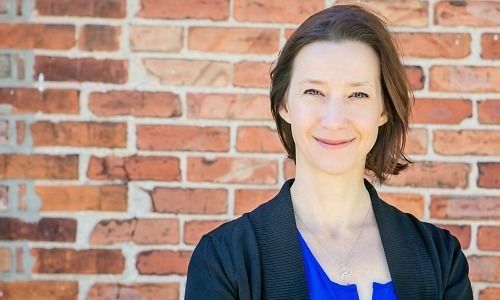As long-simmering racial tension erupts across the U.S., finance is stepping up. Wealth managers need to tackle a painful conversation involving systemic and historical privilege, finews.com's senior contributor Katharina Bart writes in her essay for finews.first.
This article is published on finews.first, a forum for authors specialized in economic and financial topics.
The C-suite outpouring to race protests across the U.S. over the last two weeks was immense: top UBS banker Tom Naratil penned a call to action, Citi finance chief Mark Mason – one of the few high-ranking African-Americans at a global bank – blogged movingly about his anguish, and Merck boss Ken Frazier said George Floyd «could be me».
Bank of America backed up its rhetoric with a $1 billion, four-year community support program focused on racial inequality in the U.S. It’s a smart corporate move astute to the fragile state of their own backyard – and one which out-of-step wealth managers should take note of.
«Private banks are desperately trying to tap into the desire of their wealthy clients to do good»
Why? Because private banks are desperately trying to tap into the desire of their wealthy clients to do good: the boom in sustainable and impact investment products as well as charitable giving bear witness to this. Except, until now, private banks have mainly focused on philanthropy, as part of personal wealth goals, on countries in the developing world.

UBS' Phyllis Costanza in India: (Image: UBS Optimus Foundation)
Notably, UBS’s in-house charitable foundation Optimus takes clients on annual trips to view progress on aid projects in person (Nepal, Liberia, India, and South Africa were planned for 2020). The junkets to far-flung destinations overlook a painful reality in the largest wealth market in the world, the U.S.
«Wealth inequality isn’t new»
Black American families are about 20 times more likely to have zero or negative wealth (or bottom-line debt) than they are to have $1 million or more in assets, according to a study on the racial wealth divide by Inequality.org, a policy think-tank.
Wealth inequality isn’t new, of course – Josef «Joe» Stadler openly fretted three years ago about the poor striking back. The rich, he said, fear a redo of the late 20th century when the U.S. wealth gap widened dramatically, and fear lurked in the heart of «robber barons».
«Snap boss Evan Spiegel also called for the U.S. to make amends financially»
Fast-forward three years, and private bankers are openly musing whether the wealthy could be forced to help address inequalities in society – whether the pitchforks are coming. One of Citi’s top advisers to Europe’s super-rich said he expects the wealthy to be taxed, or even expropriated, in order to help pay for the cost of the pandemic, for example.
Some wealthy are breaking ranks: Robert Johnson, a 74-year-old American media magnate, is calling for $14 trillion in reparations for the descendants of slaves. Representing new tech money, Snap boss Evan Spiegel also called for the U.S. to make amends financially.
The idea is simple in practice – many nations have solidarity funds for past wrong-doings. In reality, it is a lightning rod: reparations dramatically expand affirmative action measures first introduced by John F. Kennedy in 1961 – and fought in courts to this day.
«Private bankers risk losing the conversation to a new generation of opinion-leaders»
Cornell professor Edward Baptist has devoted large parts of his academic career to writing about slavery and American development – and in turn, the economic structure of the U.S. Banks like UBS, where «legacy» is one of three overarching themes is pursuing with clients, need to tackle the touchy subject of historic wrongs with their wealthy before they are confronted with it more forcefully.
Private bankers risk losing the conversation to a new crop of opinion-leaders who speak to next-generation clients (look no further than Humphrey Yang’s catchy TikToks using rice kernels to explain Jeff Bezos’ wealth).
@humphreytalks Rice. Part 2: Jeff Bezos net worth. ##rice ##billion ##billions ##amazon ##jeffbezos ##money ##personalfinance ##xyzcba
♬ original sound - humphreytalks
Grimly, racial inequality and police brutality are also playing out in full view, in the reams of footage of clashes between protesters and authorities in the U.S.
To its credit, Credit Suisse was looking into the racial divide in wealth as early as 2014, when then-top executive Pamela Thomas-Graham oversaw a study between the Swiss bank and Brandeis University. The wealth manager lost interest in the topic when she left two years later (and Credit Suisse of course exited the U.S. wealth market in 2015).
«The second option demands humility»
It would be simplistic to parse inequality in the U.S. down to race – but events of the last two weeks make clear the depth of divisions. It is only a matter of time before reparations make their way onto the political scene (just ask the wealthy Sackler family, which has been on the receiving end of shifting societal expectation and called to actively contribute to fixing ills wrought in communities by opioid abuse).
Will wealth managers continue to look away, and focus their «legacy» talks with clients on helping economically deprived parts of the world from relative safety? Or will they have the gumption to have a genuinely awkward conversation with some of their clients – or perhaps even a walk around the low-income, minority neighborhoods of their city?
The second option demands humility, the courage to address privilege, forgoing a feel-good charity trip in favor of examining needy communities in their own backyard. It is in the power of impeccably-connected wealth managers to help identify local, community-based projects, and to get the big money to throw their weight and influence behind them.
Katharina Bart is a senior contributor for finews.ch and finews.com. She is a dual Swiss-American citizen with more than 20 years of experience as a journalist, most recently as chief correspondent for Thomson Reuters in Zurich. Prior to that, she wrote for Dow Jones Newswires and The Wall Street Journal from 2003 to 2011. After studies in journalism and communications at Grand Valley State University in Michigan and the University of Fribourg in Switzerland, she worked for Zurich Financial Services (ZFS), Rieter, and Friedli Corporate Finance.
Previous contributions: Rudi Bogni, Peter Kurer, Rolf Banz, Dieter Ruloff, Werner Vogt, Walter Wittmann, Alfred Mettler, Peter Hody, Robert Holzach, Craig Murray, David Zollinger, Arthur Bolliger, Beat Kappeler, Chris Rowe, Stefan Gerlach, Marc Lussy, Nuno Fernandes, Richard Egger, Maurice Pedergnana, Marco Bargel, Steve Hanke, Urs Schoettli, Ursula Finsterwald, Stefan Kreuzkamp, Oliver Bussmann, Michael Benz, Peter Hody, Albert Steck, Martin Dahinden, Thomas Fedier, Alfred Mettler, Brigitte Strebel, Peter Hody, Mirjam Staub-Bisang, Nicolas Roth, Thorsten Polleit, Kim Iskyan, Stephen Dover, Denise Kenyon-Rouvinez, Christian Dreyer, Kinan Khadam-Al-Jame, Robert Hemmi, Anton Affentranger, Yves Mirabaud, Katharina Bart, Frédéric Papp, Hans-Martin Kraus, Gerard Guerdat, Mario Bassi, Stephen Thariyan, Dan Steinbock, Rino Borini, Bert Flossbach, Michael Hasenstab, Guido Schilling, Werner E. Rutsch, Dorte Bech Vizard, Adriano B. Lucatelli, Katharina Bart, Maya Bhandari, Jean Tirole, Hans Jakob Roth, Marco Martinelli, Thomas Sutter, Tom King, Werner Peyer, Thomas Kupfer, Peter Kurer, Arturo Bris, Frederic Papp, James Syme, Dennis Larsen, Bernd Kramer, Ralph Ebert, Armin Jans, Nicolas Roth, Hans Ulrich Jost, Patrick Hunger, Fabrizio Quirighetti, Claire Shaw, Peter Fanconi, Alex Wolf, Dan Steinbock, Patrick Scheurle, Sandro Occhilupo, Will Ballard, Michael Bornhaeusser, Nicholas Yeo, Claude-Alain Margelisch, Jean-François Hirschel, Jens Pongratz, Samuel Gerber, Philipp Weckherlin, Anne Richards, Antoni Trenchev, Benoit Barbereau, Pascal R. Bersier, Shaul Lifshitz, Klaus Breiner, Ana Botín, Martin Gilbert, Jesper Koll, Ingo Rauser, Carlo Capaul, Claude Baumann, Markus Winkler, Konrad Hummler, Thomas Steinemann, Christina Boeck, Guillaume Compeyron, Miro Zivkovic, Alexander F. Wagner, Eric Heymann, Christoph Sax, Felix Brem, Jochen Moebert, Jacques-Aurélien Marcireau, Peter Hody, Ursula Finsterwald, Claudia Kraaz, Michel Longhini, Stefan Blum, Zsolt Kohalmi, Karin M. Klossek, Nicolas Ramelet, Søren Bjønness, Lamara von Albertini, Andreas Britt, Gilles Prince, Darren Willams, Salman Ahmed, Stephane Monier, and Peter van der Welle, Beat Wittmann, Ken Orchard, Christian Gast, Didier Saint-Georges, Jeffrey Bohn, Juergen Braunstein, Jeff Voegeli, Gérard Piasko, Fiona Frick, Stefan Schneider, Matthias Hunn, Andreas Vetsch, Fabiana Fedeli, Marionna Wegenstein, Kim Fournais, Carole Millet, Ralph Ebert, Lars Jaeger, Swetha Ramachandran, Brigitte Kaps, Thomas Stucki, Teodoro Cocca, Neil Shearing, Claude Baumann, Guy de Blonay, Tom Naratil, Oliver Berger, Robert Sharps, Santosh Brivio, Tobias Mueller, Florian Wicki, Jean Keller, Fabrizio Pagani, Niels Lan Doky, Michael Welti, Karin M. Klossek, Ralph Ebert, Johnny El Hachem, and Judith Basad.



































